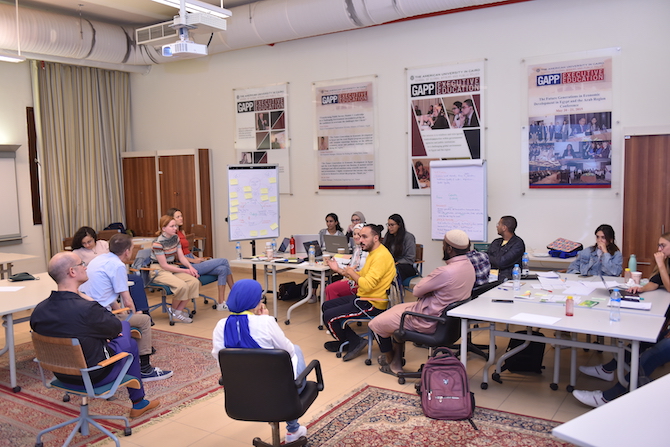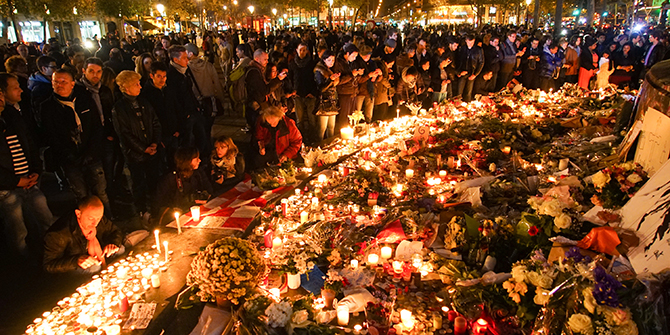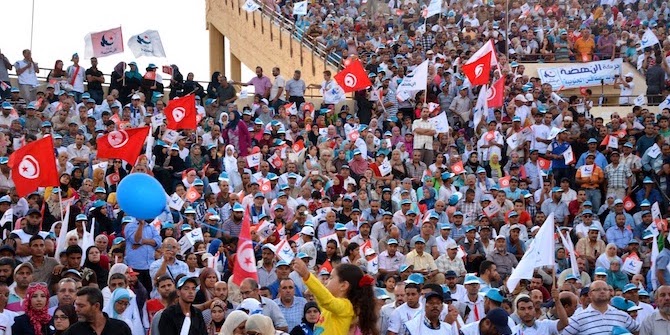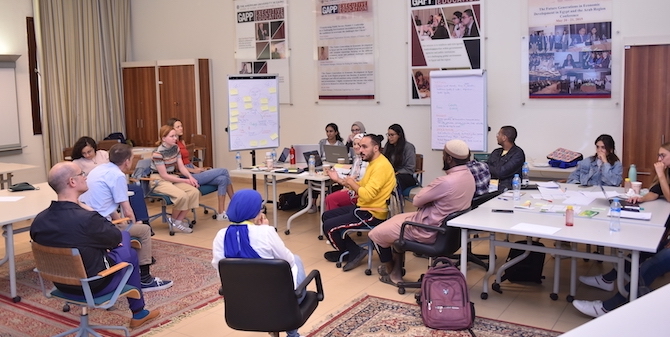Deen Sharp, Michael Mason & Noura Wahby

The climate emergency is an urban emergency. Cities, the processes of urbanisation, have been identified by scientists as the predominant sites of greenhouse gas (GHG) emissions. Rapid extended urbanisation around the globe – and particularly in the global south – has accelerated increases in emissions in recent years. While cities and urban infrastructure are a central vector of GHG emissions, they also offer a critical opportunity for adaptation and mitigation of climate change. Urbanisation has risen to the top of the agenda for climate action and financing. The recognition by scholars and policy makers of the importance of cities and urbanisation to adaptation and mitigation strategies has resulted in the formation of the field and domain of practice conceived as “climate urbanism”. The domain of climate urbanism and its associated concepts of “Urban Climate Change Resilience” (UCCR) and low carbon cities is changing how the urban is thought about and materialised on a global scale.
In the Arab region, however, climate urbanism as a scholarly domain and field of practice remains neglected. The organisation of The United Nations Framework Convention on Climate Change (UNFCCC) COP27 in Egypt this year, and the UAE in 2023 has prioritised climate change on the policy agenda in the region, yet critical perspectives on the role cities play in new green initiatives remain limited.
At the start of November, in the run up to COP27, LSE’s Dr Michael Mason and Dr Deen Sharp undertook an academic collaboration with Dr Noura Wahby the American University Cairo (AUC). The AUC-LSE collaboration kicked off with a roundtable with civil society organisations and local academics to discuss the latest urban scholarship on urbanism and its intersections with climate science.
A public lecture by Mason was presented on “Climate Change in the Middle East: An Overview of Impacts and Responses”, with discussants from AUC. Mason summarised the challenges that the climate change poses for the Middle East with rising temperatures, more extreme heat waves, and sea level rises, but noted that climate change stresses are mediated by wider political-economic structures. He also outlined the modest governance commitments to climate change mitigation and adaptation in the region. Mason warned that while climate change is not yet a conflict multiplier in the Middle East, conflict, political instability and economic inequality intensify climate vulnerability. Deen Sharp followed Mason’s presentation by presenting the LSE Middle East Centre sponsored project “Sustaining Kuwait in Unsustainable Times” and the report published in October 2021, “The Quiet Emergency: Experiences and Understandings of Climate Change in Kuwait”. This presentation stressed the dire consequences for Kuwait that climate change will bring but the minimal social discourse within the country in relation to it.
The talks were followed by a graduate student-led workshop focused on the potential of climate urbanism frameworks for Egypt, using design-based approaches. Students were provided with lectures on climate adaptation in urban contexts, and an in-depth discussion of Egypt’s National Climate Change Strategy 2050. Inspired by the recent creation of an Egypt Sovereign Green Bond, students split into two groups were given the scenario of creating a climate urbanism framework with the funds from their own sovereign green bond of $750 million.
The first group focused on the Delta region, one of Egypt’s most vulnerable regions to climate change, where they imagined a series of rural hubs to encourage interconnectivity for sustainable development. Given the already rapidly urbanising countryside, the aim of the initiative was to make rural areas more attractive for existing inhabitants and to decrease the pull of large urban regions through bolstering the financial, social and environmental capabilities of rural areas. Three main axes of intervention were identified: financial capabilities to be strengthened through the provision of microloans; capacity building undertaken through business development services, entrepreneurship and technical training; and strengthening local government through decentralising infrastructure at the town-level.

The second group focused on flood management in New Cairo, an elite suburb of the capital which has been prone to intense flash floods in the past years. The challenge they aimed to address was reducing the vulnerability of New Cairo to flash floods. The solution they proposed involved the creation of neighbourhood green infrastructures that encouraged water conversation and promoted economic value through more efficient mobility and better quality of life.

At COP27 the urban agenda was pushed to the forefront. Egypt will again be host to a major international conference that will place urban questions at its core, as its hosts the twelfth World Urban Forum. The need for more innovative and sustainable forms of urbanisation in Egypt and beyond has never been more urgent. The students at AUC in this AUC-LSE collaboration have shown they are ready to take on the challenge.
This piece is part of the research project ‘Sustaining Kuwait in Unsustainable Times’ conducted as part of the LSE Middle East Centre Kuwait Programme, funded by the Kuwait Foundation for the Advancement of Sciences. Deen Sharp is the principle investigator on this project.
[To read more on this and everything Middle East, the LSE Middle East Centre Library is now open for browsing and borrowing for LSE students and staff. For more information, please visit the MEC Library page.]






